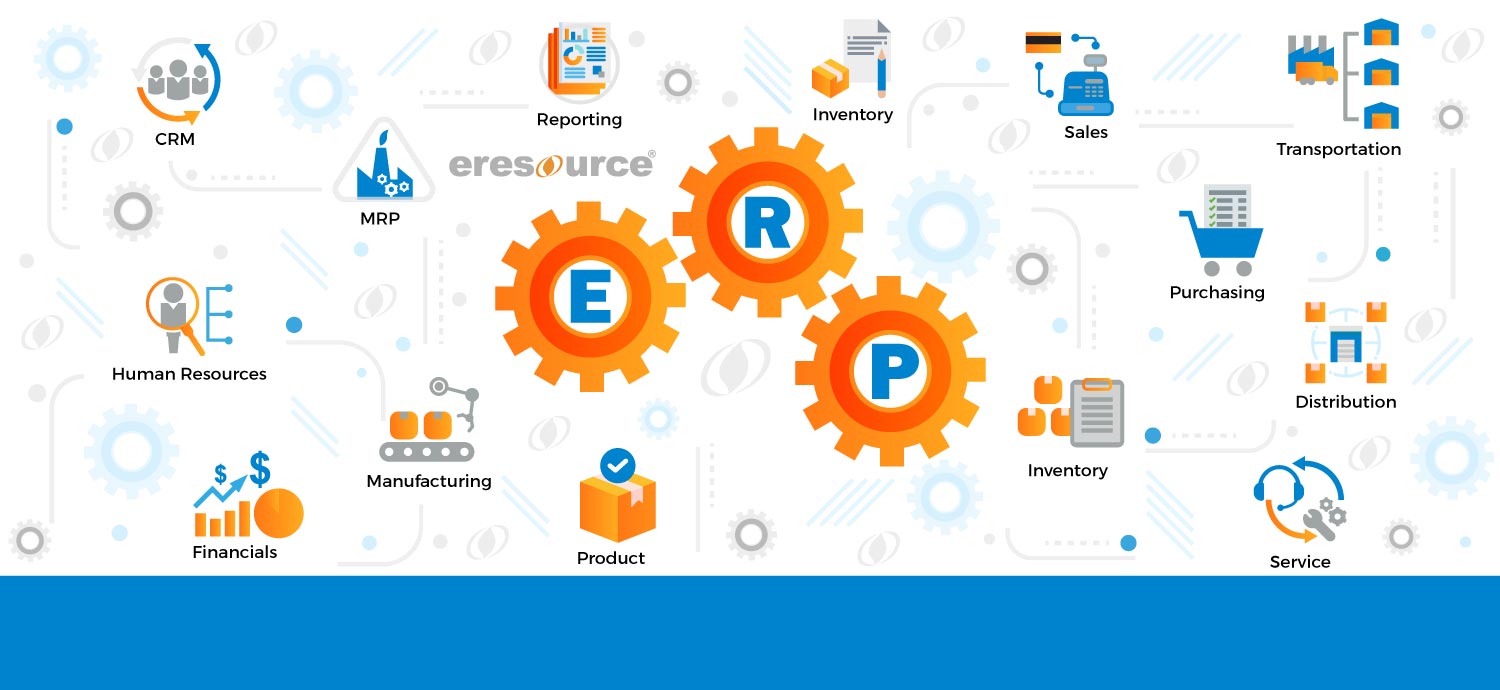Businesses all around the world are increasing their reliance on ERP systems as a cost efficient alternative to their software applications. However, high cost involved in deployment of this marvelous technology prevents the small/mid size organizations enjoy the tremendous benefits of ERP. Since the introduction of an affordable, low-cost ERP from eresource ERP, many of the midmarket organizations also started to administer their businesses effectively using this latest technology.
An ERP package should provide an organization with a solid foundation, incorporating all of the fundamental aspects of running a business. Expectations run high when an organization deploys an ERP package – if the solution is a good fit for the company, the company stands to gain tremendous cost savings and service improvements across the enterprise.
Manual processes are automated, production scheduling is more efficiently managed and inventory is more accurately assessed. Also, business performance can be measured in a much more holistic fashion than ever before. This gives executives real-time visibility into all business processes, enabling them to make better strategic decisions. In short, with the right ERP package, a midmarket company can compete more aggressively in global markets.
According to a survey an ERP implementation can reduce costs in three primary categories: inventory costs, manufacturing operating costs and administrative costs. The survey’s best-in-class respondents reported a 21 percent decrease in inventory costs, a 17 percent decrease in manufacturing operating costs and a 16 percent decrease in administrative costs. The average respondents’ reductions were 11 percent, 8 percent and 9 percent, respectively.
Because an ERP solution has its fingers in all aspects of running a business, its benefits are myriad and go beyond tangible cost reductions. It can improve an organization’s customer service and response time when solving issues. It can solve issues of interoperability among multiple manufacturing locations. It can standardize and accelerate manufacturing processes in all of a company’s manufacturing sites.
It can streamline a manufacturer’s order-fulfillment processes. It can facilitate connecting with ‘partners’ and ‘suppliers’ enterprise systems. ERP can even help an organization maintain compliance with government regulations, from hiring practices to environmental laws.
Case studies done on specific ERP implementations reveal a variety of different business-specific benefits. One of the case studies revealed that by replacing legacy systems with an integrated ERP package, one travel-accessories manufacturer reduced its inventory levels by 30 percent, reduced its warehouse space requirements by 38 percent, improved its month-end close process by five days, reduced its DSO (Days Sales Outstanding) by 44 percent and increased sales by 100 percent without hiring new employees.
Also Read – Best ERP Software for Construction Industry
Categories
Register for Free Demo!
Recent Post
-

eresource ERP 360 - an
11th Apr 2019 -

A competitive ERP system for
17th Apr 2019 -

Auto components manufacturing industry has
17th Apr 2019 -

Make the best use of
17th Apr 2019







